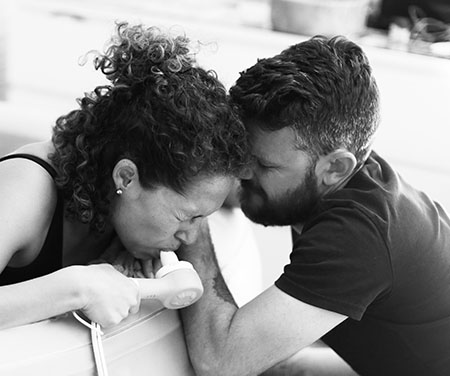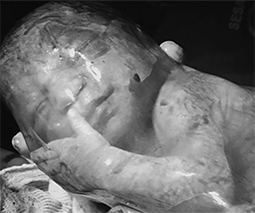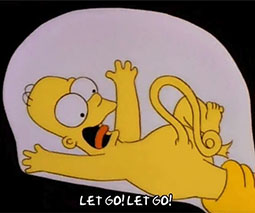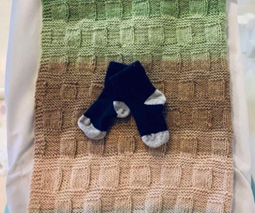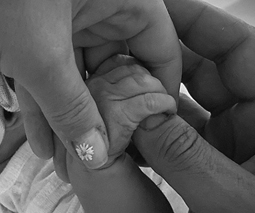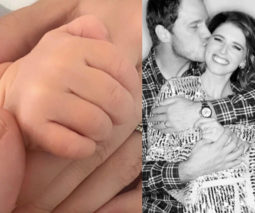3 unexpected things I wish I knew before I had my elective caesarean
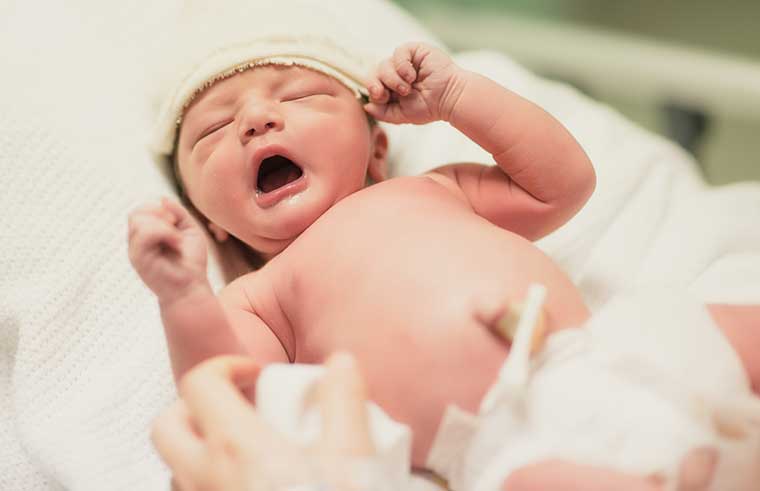
During my first pregnancy, I remember reading an interview with a midwife who’d had decades of experience working with mothers-to-be. She admitted she found it somewhat hilarious that women today often arrive at the labour ward with a carefully prepared birth plan.
The midwife said that while having a plan around who you would like as your support person (or persons) in the delivery room and whether you will be having an epidural is beneficial, a neatly typed up step-by-step birth plan is largely a waste of time.
No one can predict what type of delivery you will have. Babies turn mid-labour, cervical dilation may suddenly stop, or you may have underestimated your pain threshold and despite wanting a completely natural birth, you end up demanding drugs … stat!
Sounds like a plan
There is one birth experience though, which you can be somewhat prepared for and one that will pretty much go to plan, all being well – an elective caesarean.
Your obstetrician may advise an elective caesarean due to a range of issues that may rule out your ability to have a vaginal birth.
These include: your baby is breech and unable to be turned (as was my case), fetal macrosomia (a baby measuring much larger than average for their gestational age), carrying multiples, cephalopelvic disproportion (when your pelvis is too small to deliver a baby vaginally), placenta issues, or if you have a chronic health condition such as heart disease, high blood pressure or gestational diabetes.
Some women also opt for an ‘elective caesarean on maternal request’ due to psychological concerns such as tokophobia (fear of birth) or extreme anxiety around labour, perhaps brought on by a previous traumatic childbirth experience.
By having an elective caesarean, women can avoid the stress and anxiety of a birth experience that may result in an emergency caesarean, and you’re informed about what the process entails.
Having said that, while I was as ‘prepared’ as I could be for my own caesarean – researching obsessively prior to the surgery, posting questions on birth forums, and quizzing friends and relatives who’d been through their own c-sections – there were still several things that came as a shock to me when I eventually went through the process myself.
Here are the three things I wish I’d known about elective caesareans pre-surgery.

1. The emotional shock
It was about two or three days post-op when the enormity of what had occurred finally hit me.
While before the procedure I had understood intellectually that I was going to be having major surgery, and was informed about what the procedure entails (literally cutting through multiple layers of skin, muscle and connective tissue in order to retrieve my baby), the knowledge that I had voluntarily been cut open was suddenly very shocking to me.
Whether it was due to the post-partum hormones (those infamous “baby blues”) kicking in or the feelings of anxiety or melancholia that can occur when your breast milk comes in, realising what my body had undertaken was very confronting.
Even to this day (my son is now two) I’m amazed my body went through such an invasive procedure and recovered as well as it did.
2. What’s that … smell?
This is something I think obstetricians should warn mums about before having their caesareans.
You will smell … burning. Burning skin that is. The cauterising tool used to minimise bleeding during surgery will elicit a very strong odour.
I think because I had largely been informed about every step of the caesarean – how the spinal anaesthetic would be administered, how long the caesarean would take, that I would feel some pressure and tugging – when something occurred that I had not known would happen (even something as innocuous as a particular smell) I was a little panicked.
At the time, having never had a c-section before, I didn’t know if the burning smell meant something was wrong.
Turns out, that smell is completely normal and commonplace, although not every woman reports smelling it.
3. My baby didn’t cry
When my obstetrician first held my son up over the surgical drape so I could see him for the very first time, he appeared to be half asleep.
Somewhat panicked I asked, “Why isn’t he crying?! Is something wrong?”
Conditioned by years of watching movies and TV shows featuring babies coming into the world screaming their little lungs out, my son’s initial silence and somewhat groggy appearance was a little scary.
No one had told me that not every baby immediately cries when they’re born. Some may require a vigorous rub on the back, or to have the amniotic fluid suctioned out of their nose and mouth before they give a lusty cry.
Thankfully, my son’s silence didn’t even last 60 seconds and there was nothing to worry about.
Expect the unexpected
Ultimately, despite the ‘surprises’ experienced during and after my elective caesarean, I’m still relieved that I chose to deliver in this way.
My son was delivered completely healthy without any complications (receiving a 10 out of 10 on the APGAR score!) and compared to an emergency caesarean (which was a very real risk had I allowed my body to go into labour) my recovery was fantastic.
Every woman’s birthing experience will be different and there’s no way to know how it will proceed. My advice? Expect the unexpected, even when having a planned caesarean … I think that’s also pretty good advice for parenting in general!
